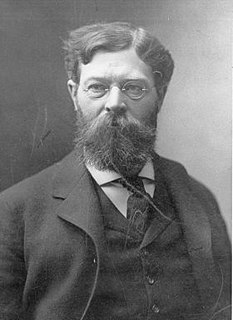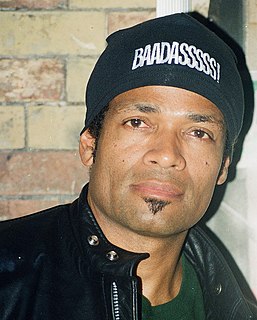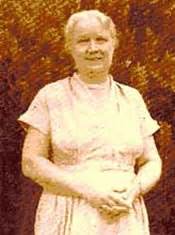A Quote by William DeWitt Hyde
The world we live in is a world of mingled good and evil. Whether it is chiefly good or chiefly bad depends on how we take it. To look at the world in such a way as to emphasize the evil is the art of pessimism. To look at it in such a way as to bring out the good, and throw the evil into the background, is the art of optimism. The facts are the same in either case. It is simply a question of perspective and emphasis.
Related Quotes
In this world, there is no absolute good, no absolute evil," the man said. "Good and evil are not fixed, stable entities, but are continually trading places. A good may be transformed into an evil in the next second. And vice versa. Such was the way of the world that Dostoevsky depicted in The Brothers Karamazov. The most important thing is to maintain the balance between the constantly moving good and evil. If you lean too much in either direction, it becomes difficult to maintain actual morals. Indeed, balance itself is the good.
There's always the same amount of good luck and bad luck in the world. If one person doesn't get the bad luck, somebody else will have to get it in their place. There's always the same amount of good and evil, too. We can't eradicate evil, we can only evict it, force it to move across town. And when evil moves, some good always goes with it. But we can never alter the ratio of good to evil. All we can do is keep things stirred up so neither good nor evil solidifies. That's when things get scary. Life is like a stew, you have to stir it frequently, or all the scum rises to the top.
This is a world of good and evil. Wherever there is good, evil follows, but beyond and behind all these manifestations, all these contradictions, the Vedanta finds out that Unity. It says, "Give up what is evil and give up what is good." What remains then? Behind good and evil stands something which is yours, the real you, beyond every evil, and beyond every good too, and it is that which is manifesting itself as good and bad. Know that first, and then and then alone you will be a true optimist, and not before; for then you will be able to control everything.
Therefore I begin to think, my Lord, you purposely allow us to be brought into contact with the bad and evil things that You want changed. Perhaps that is the very reason why we are here in this world, where sin and sorrow and suffering and evil abound, so that we may let You teach us so to react to them, that out of them we can create lovely qualities to live forever. That is really the only satisfactory way of dealing with evil. Not simply binding it so that it cannot work harm, but whenever possible overcoming it with good.
Thus, then, stands the case. It is good, that authors should be remunerated; and the least exceptionable way of remunerating them is by a monopoly. Yet monopoly is an evil. For the sake of the good we must submit to the evil; but the evil ought not to last a day longer than is necessary for the purpose of securing the good.
When one has once accepted and absorbed Evil, it no longer demands the unfitness of the means. The ulterior motives with which youabsorb and assimilate Evil are not your own but those of Evil.... Evil is whatever distracts. Evil knows of the Good, but Good does not know of Evil. Knowledge of oneself is something only Evil has. One means that Evil has is the dialogue.... One cannot pay Evil in installments--and one always keeps on trying to.
We like to think there is this core of human nature – that good people can't do bad things, and that good people will dominate over bad situations. Infact, when we look at the Stanford prison studies, that we put good people in an evil place, and we saw who won. Well, the sad message in this, is in this case is the evil place won over the good people.
In the story of the Creation we read: ". . . And behold, it was very good." But, in the passage where Moses reproves Israel, the verse says: "See, I have set before thee this day life and good, and death and evil." Where did the evil come from? Evil too is good. It is the lowest rung of perfect goodness. If you do good deeds, even evil will become good; but if you sin, evil will really become evil.



































